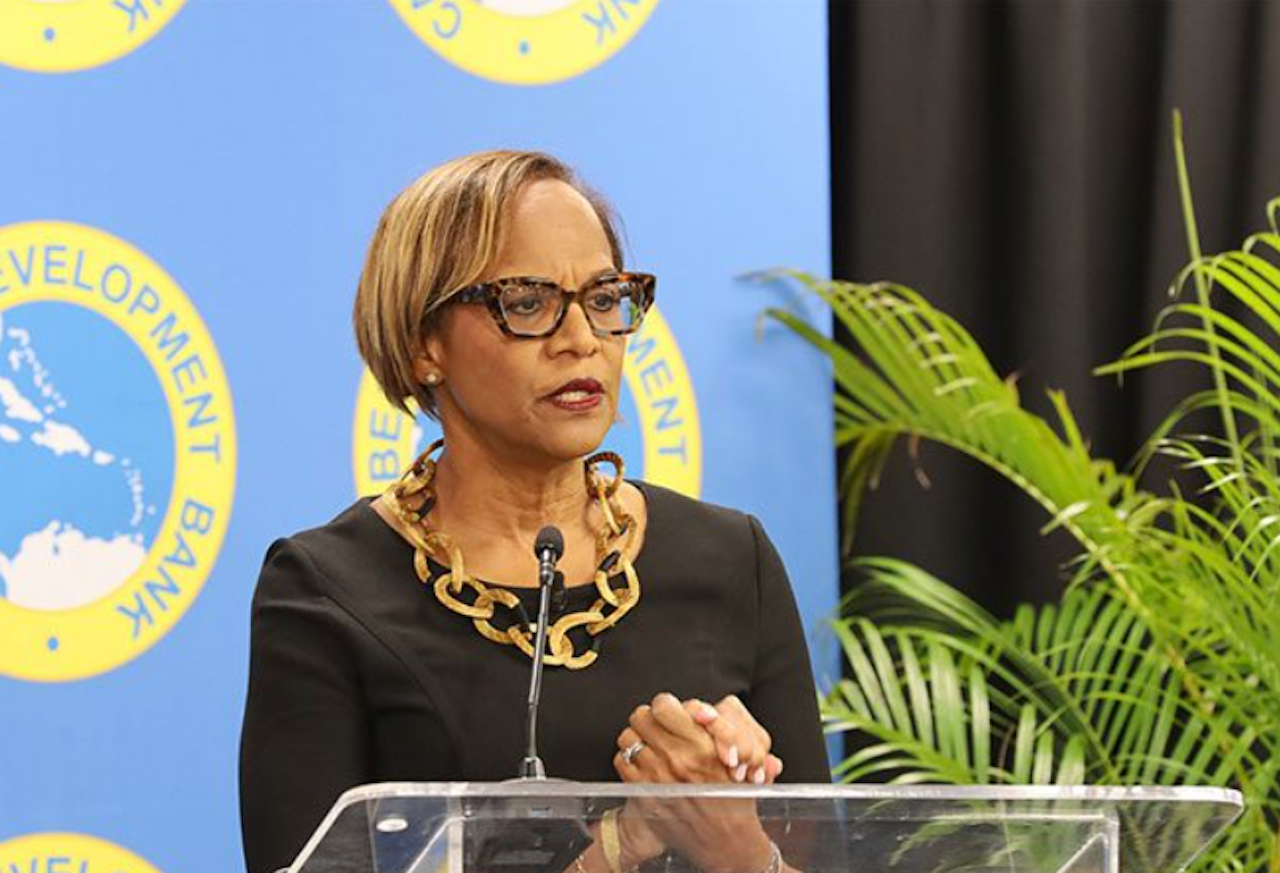Small businesses in the Caribbean are vital for driving economic growth and innovation, but they face significant challenges that threaten their potential, according to Therese Turner-Jones, acting vice president of operations at the Caribbean Development Bank (CDB).
Speaking during the Regional Colloquium on Wednesday as part of Small Business Week 2024, she noted the importance of empowering this sector to catalyse new economic opportunities across the region.
“Small businesses really are the backbone of our economy,” Turner-Jones stated. “They account for about 90 per cent of all the firms in our region and contribute more than 50 per cent to GDP, providing well over 60 per cent of all jobs, including for women and young persons.”
She noted that this statistic points to the critical role that small businesses play in job creation and economic stability in Caribbean nations.
Despite their importance, the economist noted, small businesses face a myriad of challenges, including high unemployment rates, economic volatility, and an over-reliance on sectors like tourism and agriculture.
Turner-Jones pointed out that while the Caribbean is endowed with “rich cultural heritage, beautiful landscapes, and vibrant communities,” it remains susceptible to external shocks, as evidenced by the economic downturns experienced during the 2008 global crisis and the recent pandemic.
She further highlighted that investing in and empowering small and medium enterprises could significantly help achieve up to 60 per cent of the Sustainable Development Goals by 2030 and that they can assist in driving local economies and food security.
She however advised that to realise their full potential, small businesses must navigate numerous impediments, including access to finance.
“Traditional banks often regard small businesses as high-risk, leading to a cycle of under-capitalisation,” Turner-Jones explained. “Most small businesses rely on loans from family or informal markets, while asset-based lending remains underdeveloped.”
She emphasised the need for innovative funding solutions, such as microloans, crowdfunding platforms, and public-private partnerships, to provide the necessary capital for growth.
“Governments and financial institutions should work together to develop tailored funding solutions for small businesses,” she recommended.
The economist shared that access to markets is another significant hurdle, noting that “many MSMEs lack strong links with the international economy, which limits their potential for expansion.”
She called for enhanced market intelligence to help small businesses understand trends and demands, as well as improved logistics and transportation networks to facilitate trade.
Turner-Jones further outlined several strategies for empowering small businesses, including streamlining regulations, enhancing education and training, and promoting local products.
“We need to advocate for policies that simplify the business registration process, making it easier for entrepreneurs to transition from the informal sector to the formal economy,” she said.
Turner-Jones reiterated the essential role of small businesses in fostering community cohesion and enriching local economies.
“A thriving local business ecosystem creates vibrant neighbourhoods and strengthens social bonds,” she stated, urging attendees to recognise the integral role small businesses play in shaping the Caribbean’s economic future.
Also participating in the colloquium was Chief Executive Officer of the Small Business Association Dr Lynette Holder, Pro Vice-Chancellor and Principal of the Five Islands Campus of the University of the West Indies, Professor Justin Robinson and finance expert Chukwuka Amadife.
They also discussed issues concerning e-commerce gateways, supply chain management and innovative financial solutions, noting that insights shared during the colloquium are vital for policymakers, entrepreneurs, and stakeholders as they seek to navigate the challenges and harness the immense potential of the small business sector within the region.
(SM)




